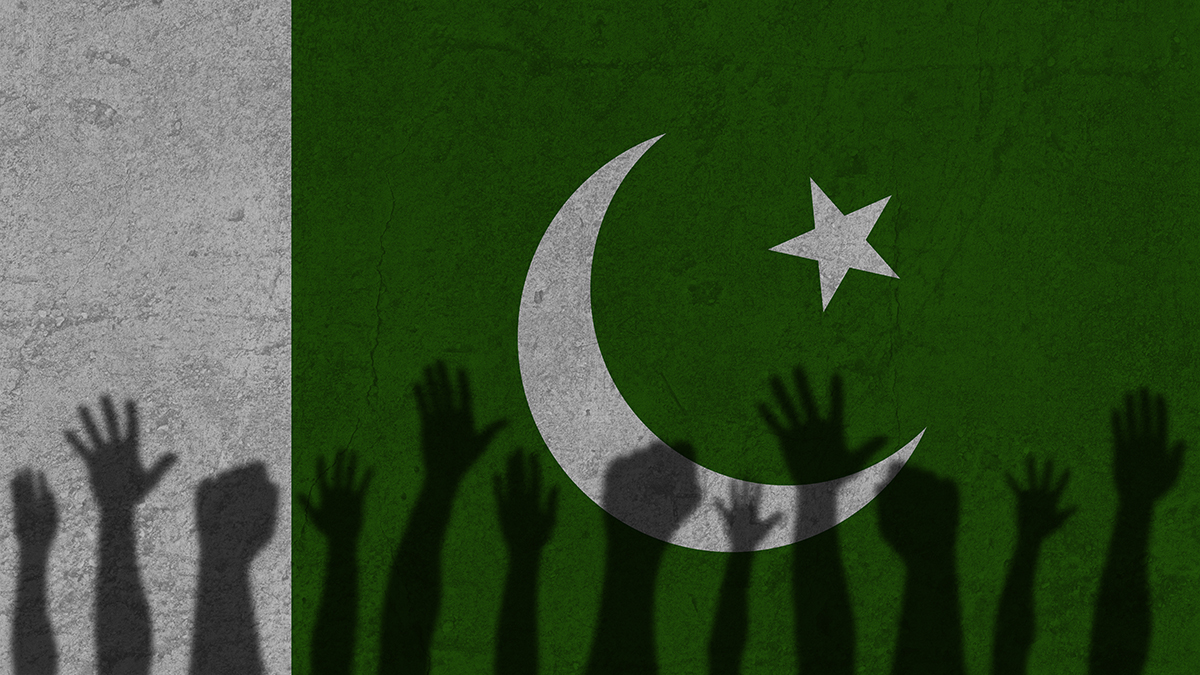A surge of anger at the powerful military has followed the dramatic arrest of former Prime Minister Imran Khan on corruption charges by paramilitary troops. The arrest has sparked protests across major cities, with defiant crowds breaching military properties and setting fire to the homes of army personnel. This direct challenge to the military, which has traditionally held significant power in Pakistan, has put the country on edge.
Since gaining independence in 1947, Pakistan has struggled with political instability, frequent regime changes, and military coups, with the military playing a decisive role in determining who remains in power.
Khan and his supporters have systematically attacked several military installations with anti-army slogans raised. According to the military, Khan and his supporters have crossed a red line. In a statement, the military warned of severe retaliation against any further attacks on the army or state installations, placing the responsibility on the group seeking to push Pakistan into civil war.
Police have arrested six senior politicians from Khan’s party on charges of inciting arson and violent protests, with more arrests expected soon.
The crisis unfolds against an acute economic crisis in Pakistan, with soaring inflation rendering food and fuel unaffordable for many. These circumstances have heightened concerns about the country’s stability, mainly as it is an election year for Pakistan.
Khan has consistently claimed in interviews that attempt to arrest him are intended to ensure his removal from the political race, but the government denies these allegations.
Key Details:
Why was Khan arrested?
Paramilitary troops forced their way into a courthouse in Islamabad on May 9 and arrested Imran Khan. He is facing multiple corruption charges, including illegal land acquisition for a university and the unlawful sale of gifts received from foreign leaders during his office.
Pakistan’s Supreme Court ruled Khan’s arrest unlawful on Thursday, overturning a lower court’s ruling. According to officials from Khan’s political party, the court ordered his release.
What is happening in Pakistan?
Khan’s arrest intensified the tense standoff between the military and his supporters, resulting in large protests in Lahore and Peshawar. Hundreds of protesters stormed the headquarters of Radio Pakistan in Peshawar and set the building ablaze in clashes with security forces. At least eight people have died, and over 300 have been injured.
The government has taken measures to control the situation, such as shutting down private schools nationwide, imposing emergency orders banning gatherings, and blocking mobile internet services. The military has been deployed in Islamabad and Khyber Pakhtunkhwa to provide security assistance.
Who is Imran Khan?
Imran Khan, a renowned politician, philanthropist, and former cricket superstar, became one of Pakistan’s most well-known prime ministers in recent decades. He founded the Pakistan Tehreek-e-Insaf (PTI) political party in 1996, which gained significant support in the 2013 general elections. Backed by the military, Khan became prime minister in 2018, promising to combat corruption and alleviate poverty. However, his relationship with the military soured, and he was removed from power due to economic mismanagement allegations.
Khan’s supporters have protested against the military’s alleged involvement in his removal from office, with the urban middle class, traditionally not involved in challenging the military’s role, strongly supporting him.
Why have protesters targeted the military?
The current protests against the military differ from previous challenges due to the significant support Khan has garnered from the urban middle class. This has increased pressure on the military, feeling the heat more intensely. Khan has openly accused the military of conspiring with his political opponent to remove him from office and has specifically named senior officials, accusing them of orchestrating the shooting at a political rally that he survived.
It has fueled the anger of Khan’s supporters, who have expressed dissatisfaction with the military establishment on social media. The intensity and frequency of Khan’s attacks on the military, especially after his ouster from power, have been unprecedented.
The current situation leaves Pakistan in a precarious state, with concerns arising about the country’s stability. The military establishment may impose a state of emergency to keep Khan behind bars for an extended period. With no strong political actors capable of posing a severe challenge to Khan’s PTI in elections, the military may see this as a viable option. Pakistan’s democratic institutions would be severely affected by such a move, however.
Civil liberties would be suspended, political dissent would be suppressed, and press freedom would be curtailed under an emergency. These actions likely exacerbate the unrest and instability, making it more challenging for Pakistan to attract foreign investment and sustain its economic growth.
The immediate future remains uncertain, with high tensions and no clear resolution. The arrest of Imran Khan has ignited a power struggle between his supporters and the military, further complicating an already volatile political landscape in Pakistan. Democracy, stability, and reputation on the global stage will be affected by the outcome of this conflict.







